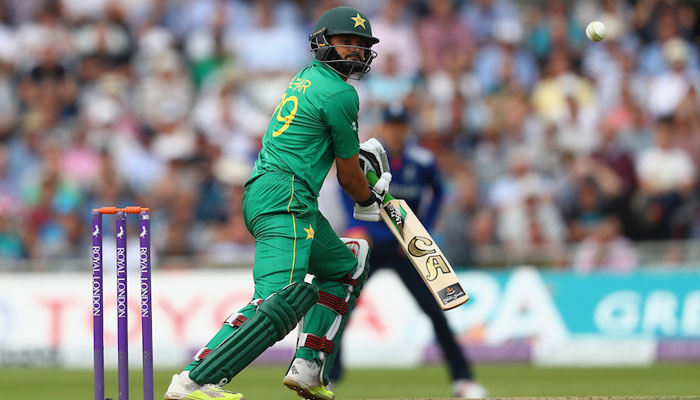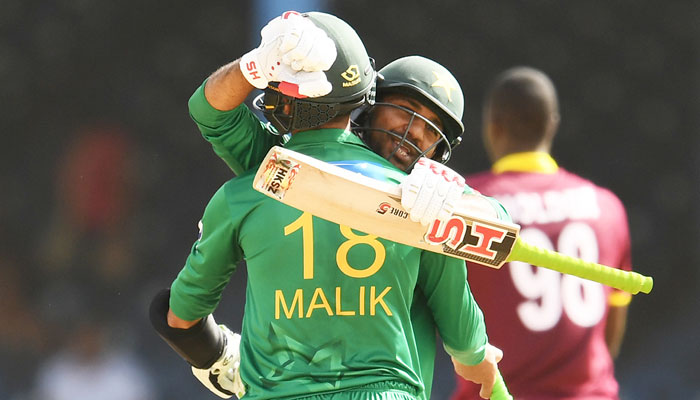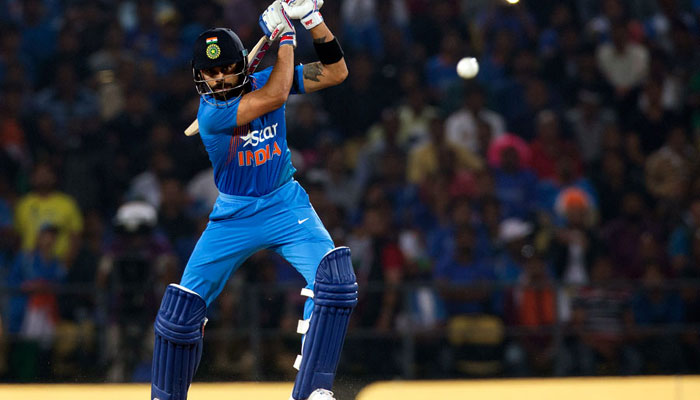May 30, 2017

KARACHI: The Champions Trophy is always an extremely competitive tournament. It is second only to the World Cup and demands the very best from every team. There are fewer margins of error; you simply cannot afford to lose, or your chances of progressing to the next stages diminish.
For Pakistan to have a chance at beating the big guns in the tournament, our batsmen must leave behind their traditionally defensive approach to batting and rise up to the demands of modern-day cricket.
Modern cricket is ruthless. Most batsmen from top teams around the world have adjusted their playing styles accordingly and turned towards aggressive batting. Scores in 200s are no longer acceptable most of the time. 300+ has become a norm in 50-overs cricket. In fact, even targets of 300+ are chased down frequently.
Pakistan has some great young talent in the team but our batting is too defensive for modern standards. Our batsmen’s strike rates paint a gloomy picture. For the sake of comparison, I’m pitting up Pakistan against India in the most recent ODI series played by each team.
Pakistan’s batting strikes rates against West Indies were nowhere near impressive enough, especially when compared against India. Among all major batsmen in the team, captain Sarfraz Ahmed seems to be the only one skilled in rotating the strike. His strike rate, circling 100 in the ODI series against the West Indies, dominated others’. Shoaib Malik, with a strike rate of 98, came second.

In contrast, the strike rates of top and middle-order Indian batsmen, overall and particularly against England in their ODI series at the beginning of this year, are downright ominous.
India chased down England’s gigantic score of 350 in the first ODI, propelled by centuries from Virat Kohli and Kedar Jadhav. They put up a total of 381 in the second ODI, winning the match as well as the series. Even though India lost the third and final ODI, they still managed to score 316 during the chase.

Majority of the top batsmen in the Indian side sported strike rates of 110-130 during that series, with the lowest being of MS Dhoni (approx 100, which is by no means substandard but was dwarfed by the superb strikes rates of his fellow players).
India, on average, scored 7.22 per over during the home series against England. Pakistan, meanwhile, scored 5.6 per over, on average, during the ODI series against the Windies.
The solution is simple: Sarfraz’s men need to bat fearlessly and wisely at the same time. Bowling remains Pakistan’s forte, and it is not fair for the bowlers when they are left to defend lacklustre totals of 230-250.
Mohammad Hafeez and Shoaib Malik, the most experienced batsmen in the team, need to perform in the Champions Trophy. They have plenty of experience playing against major teams and in English conditions, unlike some of the younger talent who have not yet faced any of the stronger sides.
There are a lot of surprises in store for all of us, since there are quite a few youngsters in Pakistan squad who have not yet played in any major international tournament.
A lot of youngsters were picked for Pakistan’s tour to the West Indies but were never given a chance to showcase their talent – a mistake, clearly, since that tour would have been perfect practice for the Champions Trophy.
Mohammad Asghar, Asif Zakir, Usman Shinwari, Usman Salahuddin, Fahim Ashraf – none of them were given a chance in the Caribbean. Fahim Ashraf, who has been selected for the Champions Trophy, has already proven to be brilliant with the bat against Bangladesh in the warm-up game, but we have yet to see him play international cricket. Why was he not given ample opportunities to play against the Windies? He will now be heading straight into the Champions Trophy with no prior international experience. I hope he makes the country proud and impresses us all.
Mohammad Abbas, meanwhile, has proven to be a very good seamer and could have been very effective in English conditions. But he was not even included in the squad.
Haris Sohail has great potential but he has not played ODIs in two years. Why was Sami Aslam not selected? He proved himself against England and New Zealand last year and could have been a good opening choice alongside Azhar Ali.
On a brighter note, Pakistan’s spin combo of Imad Wasim and Shadab Khan looks superb. Young Shadab will be an important weapon for Pakistan as none of the teams in the Champions Trophy have faced him before and therefore, he will be a surprise element.